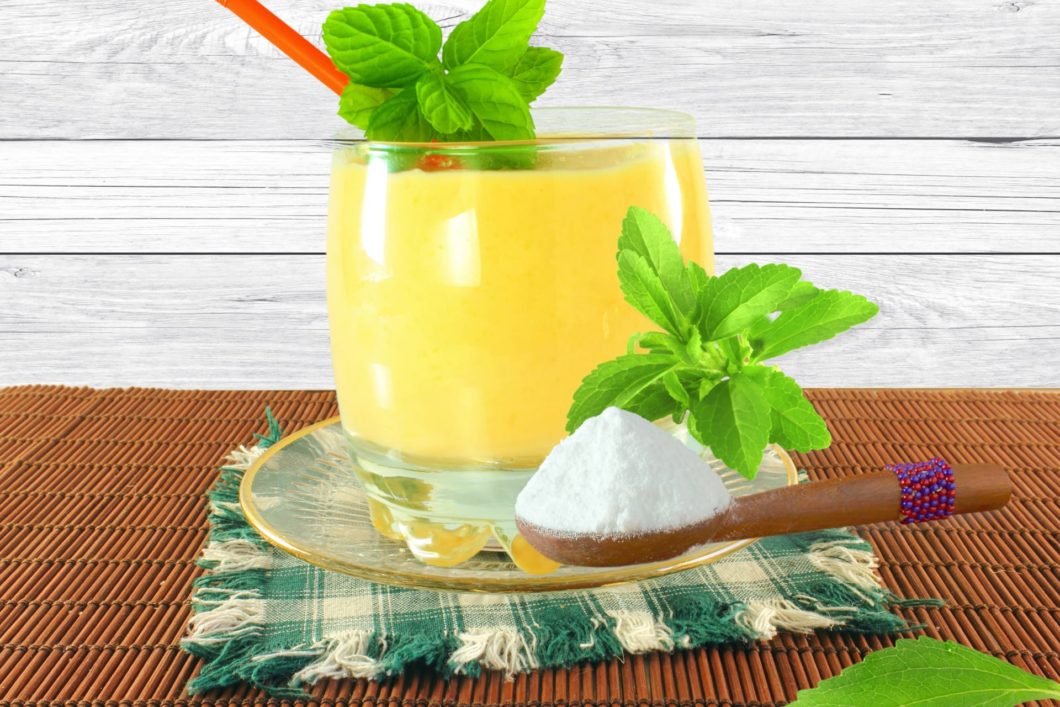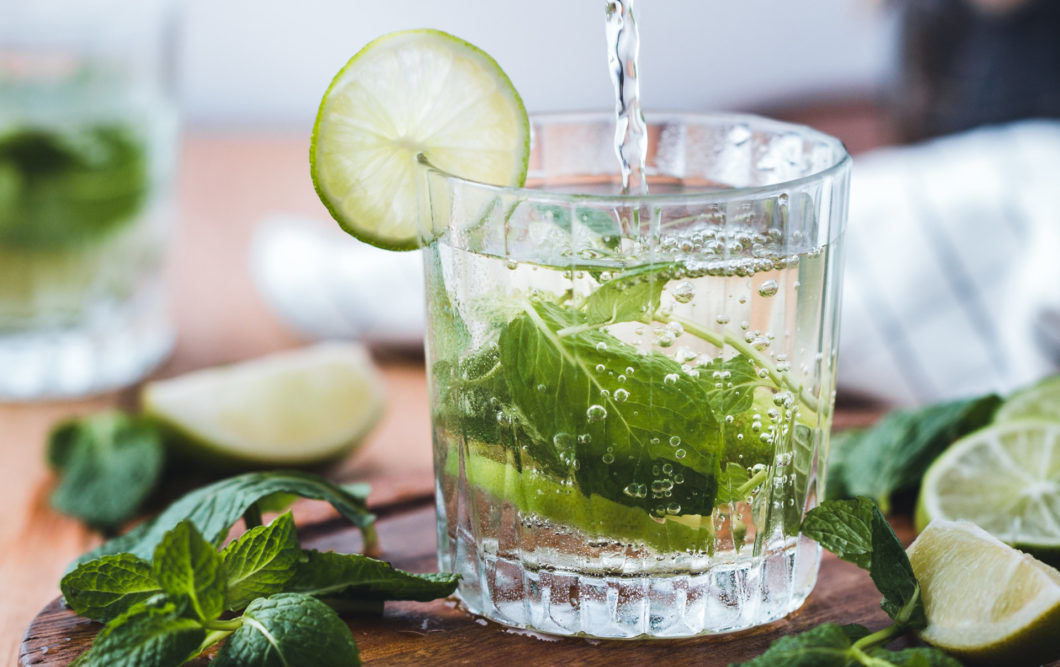Product development • Erythritol is a sugar alcohol that stands out from the crowd. It has virtually no calories and no effect on blood sugar. Erythritol has long been popular in beverages. But can we use it in other things too? And what do you need to be aware of? Let's explore this versatile sugar alcohol.
Sugar reduction is exciting but complex work. In an article series, we will look at some ingredients that can be used to reduce sugar in food. How can the ingredients be used and what should be considered? These are questions we will answer! In this article, we take a closer look at erythritol.
What is Erythritol?
Erythritol is a sugar alcohol that is found in small amounts in some mushrooms and algae, but also in fruits (for example watermelon and pears). You can find it in products that have yeast, such as beer and cheese. Industrial-scale erythritol comes from glucose fermentation.
Find out more about the extraction and much more in the article Erythritol – from seed to Eureba. Here we will take a closer look at how erythritol can be used (and should not be used) to replace sugar.
Replacing sugar with a sugar alcohol
Erythritol has about 60 to 70 percent of the sugar’s sweetness. It doesn’t sound exhilarating, but the fact is that erythritol is a very versatile ingredient. This sugar alcohol that can enhance and mask taste, it can retain moisture and act as bulking ingredient and stabilizer.
In addition, it has many other benefits …
Kind to the stomach
One advantage of erythritol, compared to other sugar alcohols, is its small molecules. This means that erythritol is mainly absorbed in the small intestine and only a fraction reaches the large intestine. This is good as it causes less problems with gases and stomach issues.
Usually, the gut bacteria loves sugar alcohol, and gratitude us with gas formation. In addition, sugar alcohol binds water, which can lead to loose stomach.
Because so little of erythritol reaches the large intestine, most people can eat it without much trouble. Nevertheless, products containing more than ten percent erythritol must be labelled with the indication that excessive consumption can have a laxative effect.
Leaves blood sugar in peace

Although the body absorbs erythritol in the small intestine, nothing happens. It does not break down but is unchanged. Therefore, erythritol has no effect on blood sugar levels whatsoever. It makes erythritol an excellent sweetener for people with elevated sugar levels, incipient insulin resistance and diabetes.
Low in calories
Another advantage of erythritol is that it is practically calorie-free. Most things are taken up in the small intestine and are thrown out unchanged. Only the little ones that end up in the large intestine contribute calories when the bacteria convert it into fatty acids. It gives about 0.2 kcal per gram – which is negligible.
In the nutrition declaration, erythritol contributes 0 kcal, unlike all other sugar alcohols that contribute 2.4 kcal per gram. Ordinary sugar has a full 4 kcal per gram.
So what can erythritol be used for?
Popular in beverages
Japan and the US were early on using erythritol in beverages of various kinds. But it took until 2015 before the European Food Safety Authority (EFSA) approved erythritol in beverages. Typical applications are soft drinks, smoothies, ice tea and milk drinks.
But why is erythritol so popular in beverages?
In fact, it is not only to provide sweetness (although you get it too) but to soften the side effects that come with many high-intensity sweeteners (for example, aspartame, acesulfame K and steviol glycosides). Even in coffee drinks and teas, erythritol can put the side flavors in place and at the same time offer some sweetness.
Erythritol can also help extend the shelf life. For example, aspartame loses sweetness after a period of time, which can cause undesirable side effects. With erythritol, the lost sweetness is compensated and the aftertastes are masked.
Simply put: Sugar-reduced drinks taste better with erythritol.
But erythritol is also a good fit for other foods.
Many applications
We find erythritol in ice cream, cheese and sweets.
In milk products such as ice cream and yoghurt, erythritol can be used to reduce sugar and thus the calories and at the same time keep the mouth feeling intact. But also in new niche products such as protein pudding. We also find erythritol in jam, marmalade and müsli. And erythritol and saccharin have proven to work well together in, for example, chewing gum, marshmallows,
…… and toothpaste!

Prevents Caries
Like all sugar alcohols, erythritol is harmless to the teeth; it does not cause caries.
But not only that – erythritol even seems to protect against caries. But unlike xylitol, which is another sugar alcohol that protects against caries, you cant use statements about caries and erythritol in marketing.
Not popular everywhere
With so many good properties, erythritol should be a candidate in many other contexts. But so far, the breakthrough for this exciting sugar alcohol is yet to come. For example, erythritol has not yet made a success among bakeries, although it is stable in heat up to 160 degrees Celsius.
One reason may be that erythritol lacks some other properties that sugar has. For example, erythritol has no Maillard reaction. So if erythritol replaces sugar then something more is needed to give the brown shade and myriad of flavors and scents. For example, inulin or polydextrose can be used.
Expensive
Erythritol is expensive. They cost 5 to 7 times more than regular sugar. It may also be an explanation for why erythritol has not had its breakthrough yet.
Replacing sugar with erythritol
What if we replace sugar with erythritol straight off?
Erythritol is endothermic. This means that heat is taken from the environment when erythritol dissolves in liquid. The result is a cooling effect. When you eat erythritol it simply gets cold in the mouth.
That is not necessarily a problem. In beverages, erythritol is already dissolved, and therefore it has no cooling effect there. And in some applications, such as some candies, cough drops and chewing gum, the cooling effect has an intrinsic value.
But in other contexts, it is a problem. It can be partially counteracted with exothermic ingredients. Thus, an ingredient that gives off heat in contact with liquid. Inulin has that property.
Another problem is that erythritol is not sweet enough to replace sugar alone.
Cold cakes
A research article in the Journal of Food Quality describes an experiment where cakes were baked with varying amounts of sugar replaced with erythritol. It went well up to 50 percent, but above that, the sweetness became too small and the cooling effect too great.
The experiment illustrates that it is rarely a good idea to replace sugar straight off with erythritol. Other ingredients are also needed and careful dosing is required to succeed.
We ask Srdjan

We let our expert and food engineer Srdjan Solaja give his view on erythritol and what you should think about.
Erythritol has many positive properties, but which are the negative ones?
– I would like to say that one can expect a distinct cooling effect. Erythritol also tends to re-crystallize,says Srdjan Solaja.
What does that mean?
– This means that you can have an undesirable visual effect in certain foods (for example in fruit preparations, jams and drinks) if you add too much. The end product can also be less sweet as erythritol only has 60 to 70 percent of the sugar sweetness.
Srdjan continues:
– Just like other sugar alcohols, erythritol requires knowledge in dosing and current regulations to avoid overdosing. It is recommended to combine it with other sweeteners to avoid potential stomach problems, according to Srdjan Solaja.
Srdjan’s three tips
- Consider erythritol in products for people with diabetes; it does not raise blood sugar.
- Be careful with the dosage; Erythritol has a noticeable cooling effect in the mouth, and too much can cause stomach problems.
- Supplement with other sweeteners; erythritol is not sweet enough in itself.
A helping hand
If you want help reducing sugar in your product, we can help you. Do not hesitate to contact us.
Please, share this article if you liked it.
[et_social_share]








